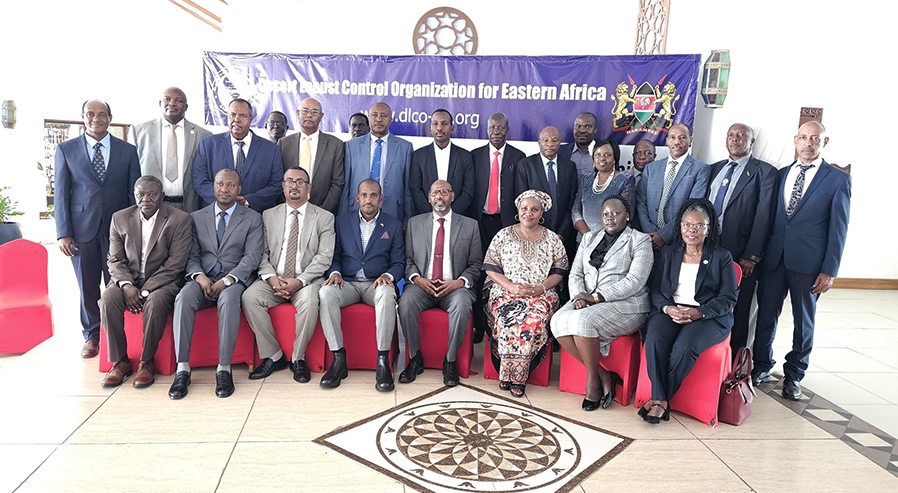Minister Tumwebaze Advocates Regional Collaboration Against Locusts

Uganda’s Agriculture Minister, Frank Tumwebaze, joined eight other Eastern African ministers at the DLCO-EA session in Mombasa to strategize sustainable, collaborative solutions for combating desert locusts, which threaten regional food security.
Uganda’s Minister of Agriculture, Frank Tumwebaze, has joined eight other African ministers to develop a coordinated strategy to combat desert locusts. The ministers are participating in the ongoing 69th session of the Desert Locust Control Organisation for Eastern Africa (DLCO-EA) in Mombasa, Kenya. Representatives from Kenya, Tanzania, Djibouti, Sudan, South Sudan, Somalia, Ethiopia, and Eritrea are also in attendance.
“Desert locusts and other migratory pests remain a significant threat to food security across the continent. These pests do not recognize physical or political borders, making collaborative efforts essential in addressing this challenge,” Minister Tumwebaze stated on X (formerly Twitter) on December 5, 2024.
He emphasized the importance of environmentally friendly and sustainable methods to curb the breeding and multiplication of desert locusts. “We are discussing measures to halt their reproduction in a way that is both sustainable and environmentally responsible. I commend DLCO-EA for their commendable efforts,” he added.
DLCO-EA is a regional organization for pest and vector management established by an international convention signed in Addis Ababa, Ethiopia, in 1962. Its member states include Djibouti, Eritrea, Ethiopia, Kenya, Somalia, Sudan, South Sudan, Tanzania, and Uganda.
Desert locusts pose a significant threat to food security and rural livelihoods due to their rapid reproductive capacity. Experts note that locust numbers can increase twentyfold within three months, 400 times in six months, and as much as 8,000 times after nine months.
Uganda experienced three waves of desert locust invasions in 2020. The first occurred in February and March, followed by the second in April, and the third in May. The swarms entered Uganda through the Amudat district, subsequently spreading to other districts in the Karamoja region and the Teso, Sebei, Lango, and Acholi sub-regions.
The 69th DLCO-EA session aims to foster regional cooperation to mitigate the locust threat and safeguard food security across Eastern Africa.







